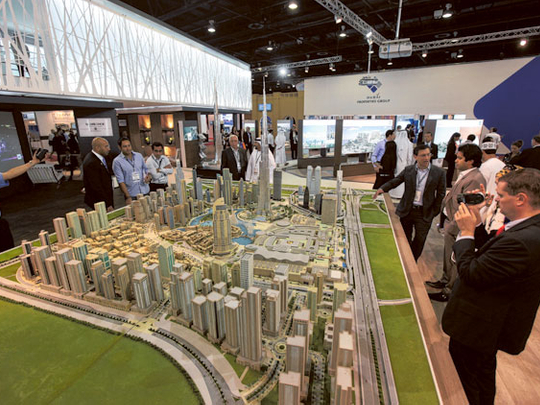
Dubai: The recent spike in demand for property in Dubai seems to be rubbing off on the rental market as well. Rentals in the prime freehold locations have shot up by 5 per cent on average, and there is a chance that it could be mirrored in the non-freehold locations of the city as well. In select locations and prime properties, freehold or otherwise, the increases have moved closer to 10 per cent.
Among the established freehold clusters, the Springs and the Arabian Ranches have recorded rental increases of 5 and 4 per cent respectively, with three-bedroom villas leasing for Dh125,000 per annum in the former and at Dh145,000 a year in the Ranches.
The gains are seeping into the emerging communities as well such as the Jumeirah Village, brought on by improved infrastructure and the addition of retail components to the mix.
More recently, apartments on Shaikh Zayed Road too have shown upward mobility, with a standard two-bedroom unit now commanding between Dh105,000 to Dh120,000 a year from a 4 to 6 per cent increase, according to data from Asteco, the property services firm.
That rental increases are showing up even on apartments is a surprise given the steady supply of new stock being released across the emirate through the year and more to come.
“New supply is certainly increasing but so too is the demand; more and more companies are hiring and the population is definitely growing,” said Richard Paul, director at Cluttons Middle East. “Within the sought-after freehold locations such as Downtown and Dubai Marina for apartments and Emirates Living, Arabian Ranches etc for Villas there is a definite upward shift in rental asking prices. Non-freehold areas such as Jumeirah, Umm Sequim and Al Barsha are seeing sharp rises since last year.”
While the recent improvement in lease terms is good from a landlord’s perspective, any sharp rise in the cost of living parameter would have implications for the wider economy.
But industry sources reckon the recent trends in Dubai’s property market attest to a seismic shift in its direction. “The market overall has witnessed an increase in demand, however it is not equal across all sectors,” said Saeed Bushalat, CEO of Salwan, the property management and services firm that is part of the government-owned Dubai Properties Group.
“We believe this diversity in the market is healthy and will help to set new standards by establishing clear categories within the industry property market in Dubai which is positive in the long term.”
In the short term, however, there is once factor that could have an effect on the rental situation here. According to the newly released third-quarter update from the real estate consultancy, CBRE, “It will be interesting to monitor the impact of a recent ruling by the Secretariat General of the Abu Dhabi Executive Council, instructing all employees of government departments and agencies to reside inside Abu Dhabi.”
How this will play out will be keenly watched by the rental market in Dubai. Paul believes the market can take this into its stride – “Abu Dhabi’s move is bold but not an unexpected one. The choice now falls on the individuals to decide their future; if they work in Abu Dhabi they will most likely have to live there too.
“Dubai’s allure in terms of a more relaxed lifestyle will still be too strong for some expats and this will possibly mean Abu Dhabi’s loss in terms of workers choosing to take up positions there.”











